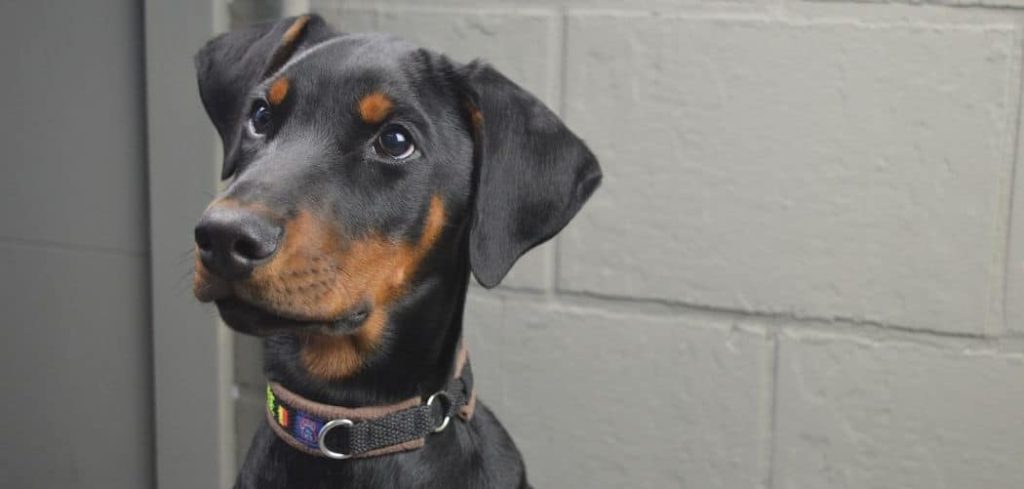Noticing your puppy drooling excessively and seeming unusually tired can be alarming.
Puppies are usually full of energy, so sudden lethargy paired with drooling often signals something isn’t right.
We outline the common causes of drooling and lethargy in puppies, what you can do at home, and when to seek veterinary help.
Puppy Drooling and Lethargic — Why It Happens
Drooling and lethargy in puppies can have many causes, some minor and others more serious. These symptoms can be triggered by heatstroke, infections, poisoning, dental issues, or even stress.
Puppies are more vulnerable than adult dogs, so problems can escalate quickly without proper care.
Sometimes the cause is temporary and resolves with rest, but other times immediate veterinary attention is essential.

Common Causes of Drooling and Lethargy in Puppies
Heatstroke
Heatstroke occurs when a puppy’s body temperature rises dangerously high, often due to warm weather or overexertion.
The excess heat causes drooling as the body tries to cool down, and lethargy sets in as heat stress overwhelms the system.
Other signs may include rapid breathing, red gums, vomiting, or collapse. This is an emergency situation and can be fatal if not treated quickly.
Read more: Puppy drooling and not eating (Here’s why)
Infections
Certain viral or bacterial infections, like parvovirus or distemper, can cause drooling and extreme tiredness.
The infection may irritate the mouth or throat, triggering drooling, while the immune system’s fight against illness drains your puppy’s energy.
These conditions often present with additional signs such as fever, diarrhea, coughing, or loss of appetite, and they require urgent veterinary attention.
Poisoning or Toxin Exposure
Puppies are curious and may chew or lick toxic substances, from household cleaners to certain plants and foods.
Many toxins cause mouth irritation and nausea, leading to drooling, and the body’s reaction to the poison can cause weakness or collapse.
If you suspect poisoning, seek emergency veterinary care immediately. Quick action can be life-saving.
Dental or Oral Pain
Puppies may drool excessively if they have mouth pain, such as from a broken tooth, gum infection, or injury. Lethargy can result from discomfort and reduced eating.
Sometimes you might notice swelling, bad breath, or reluctance to chew. Even though dental issues might not seem urgent, they can quickly lead to infections.
Nausea or Stomach Upset
Motion sickness, eating spoiled food, or intestinal parasites can all cause nausea in puppies.
Drooling is a common sign of nausea, and lethargy often follows as your puppy feels unwell.
Persistent stomach issues can lead to dehydration and require veterinary treatment, especially in young puppies.
Stress or Anxiety
Emotional distress from new environments, loud noises, or separation can cause drooling and unusual tiredness.
While stress-related symptoms may pass with reassurance and time, persistent signs should be checked by a vet to rule out underlying illness.
What to Do If Your Puppy Is Drooling and Lethargic
If your puppy’s symptoms are mild and they are otherwise alert, keep them in a cool, comfortable space and ensure fresh water is always available. Observe closely for any changes.
Encourage rest and avoid strenuous activity until they seem better. Offer bland, easily digestible food like boiled chicken and rice if they’re willing to eat.
Monitor gum color, breathing rate, and body temperature. If they worsen or new symptoms appear, call your vet promptly.
Always remove any potential toxins or hazards from your puppy’s environment to prevent accidental ingestion.
When to Call or Visit Your Vet
Contact your veterinarian immediately if your puppy is excessively drooling and lethargic alongside vomiting, diarrhea, collapse, difficulty breathing, pale or blue gums, or signs of pain.
Seek urgent help if your puppy may have ingested something toxic, is showing signs of heatstroke, or has a high fever.
Even if symptoms seem mild, young puppies can deteriorate quickly. Trust your instincts and call your vet if you’re unsure.
Read more: My dog is drooling and lethargic (Here’s why)
Key Takeaway
Drooling and lethargy in puppies can be caused by anything from mild stomach upset to life-threatening emergencies. Because puppies are more fragile than adult dogs, it’s always better to be cautious.
Provide comfort, monitor closely, and seek veterinary care if symptoms persist or worsen. Your quick action can make all the difference in your puppy’s recovery.
